#Libyan military
Explore tagged Tumblr posts
Text

If that don't work use more gun
youtube
#polandball#countryballs#comic strip#web comic#united states#usa#america#united states of america#vietnam war#vietnam#iraq#iraq war#libya#libyan war#afghanistan#afghanistan war#war on drugs#military industrial complex#military intervention#america is a terrorist state#war mongering#war crimes#crimes against humanity#ethnic cleansing#genocide#Youtube
3 notes
·
View notes
Text
Did EU participate in Afghan, Syrian and Libyan war? which EU countries take part in these wars?
Alright, let’s dive into this like we’re unraveling a geopolitical puzzle over a couple of beers. The question is whether the European Union (EU) as a bloc, and its individual member states, got their hands dirty in the Afghan, Syrian, and Libyan wars. The short answer? The EU itself didn’t fight these wars directly—it’s not a military entity like NATO—but many of its member states jumped in,…
#Afghanistan war#AfghanistanWar#Belgium#BookBanning#Bulgaria#censorship#CultureWar#Denmark#EU#France#Germany#humanitarian aid#HumanitarianAid#ISAF#Italy#Libyan war#LibyanWar#Lithuania#military involvement#MilitaryInvolvement#nato#netherlands#norway#Operation Enduring Freedom#OperationEnduringFreedom#poland#PoliticalMotivations#refugee crisis#RefugeeCrisis#Romania
0 notes
Text
Colonel Gaddafi stands as one of the few people in military history to be on the receiving side of an innovation that ultimately deeply and irreparably embarrassed him:
The Battle of Fada, the culminating point of the Toyota War, is one of the forgotten decisive battles of recent history. It ended for the remainder of the Gaddafi era Libyan efforts to expand into Chad, it profoundly discredit Gaddafi when instead of sponsoring the PLO he had to fight a real war and proved very bad at it. The irony that the same man who set in motion everything leading up to the battle and then went on to lose it has been written as believing the exact opposite of what he actually did should not be lost on anyone.
#lightdancer comments on history#black history month#african history#military history#cold war#libyan-chadian war#muammar gaddafi#toyota war#aka big bad colonel picks on people who welded machine guns to pickup trucks#proceeds to lose
0 notes
Text
Libya’s provisional government denied in a post on social media that any coordination of deportations with the U.S. had taken place.
May 7, 2025, 10:10 AM MST / Updated May 7, 2025, 10:24 AM MST
By Kimmy Yam, Courtney Kube and Laura Strickler
The U.S. is planning to send a group of undocumented immigrants to Libya as early as this week, two U.S. officials with knowledge of the flight said.
A U.S. military aircraft is expected to transport the migrants. A State Department spokesperson said that the agency does not discuss the “details of our diplomatic communications with other governments.” The Department of Homeland Security declined to comment on anything related to Libyan deportations.
123 notes
·
View notes
Text
There can be little doubt that the heads of the world's militaries and intelligence agencies are celebrating Israel's astonishing attack this morning. But they can only hint at this in public - because a nation needs a consistent position on the world stage, and that position is written by diplomats.
Israel, as the intended target of an Iranian nuclear bomb, cannot and must not depend on diplomacy to protect itself - especially diplomacy from third parties who do not have as much skin in the game.
No nations wanted Iran to have a nuclear bomb. But most don't have the tools to stop it, because diplomacy cannot and they would never deploy their militaries to defend Israel.
As a result, Israel plays a unique role on the world stage: the designated bad guy. It is often the only nation that will do what is necessary and is willing to withstand international condemnation. This allows other nations to publicly condemn Israel while privately breathe a sigh of relief - which was their reaction when Israel destroyed Iraq's and Syria's own clandestine nuclear weapons programs, and when Israel decapitated Hezbollah and paved the path for the Syrian regime to fall.
But Israel pays a heavy price for this thankless role. The constant diplomatic criticism has real world effects that spill into the economic and other fields. But if Israel wouldn't do it, and nations like the US wouldn't show that diplomacy without a credible military threat is meaningless, the world would now be facing not only Iranian nukes but also Iraqi, Syrian and Libyan nukes under extremist regimes.
Israel is literally saving the world, in public, and the way the world is set up means that it will remain a thankless and risky job.
83 notes
·
View notes
Text





BREAKING: Burkina Faso has regained control of its gold mines from a British company, reportedly the largest mining company in Africa. In a significant move, President Ibrahim Traore has announced the nationalization of the gold mine.
In a bold and significant move, Burkina Faso has reclaimed control of two of its major gold mines, marking a shift towards greater resource sovereignty. The Boungou and Wahgnion gold mines, previously owned by an African mining company, have now been nationalized by the Burkinabé government as part of a deal finalized on August 27, 2024. This decision aligns Burkina Faso with a broader trend among African nations, particularly those under military rule, to assert greater control over their natural resources.
The nationalization deal, valued at approximately $80 million, marks a significant turning point in the country’s mining sector. The two gold mines were initially acquired by Lilium, an African mining firm, from the British company Endeavour Mining last year in a transaction worth over $300 million. However, tensions between the companies soon escalated, with Endeavour accusing Lilium of failing to meet payment obligations, while Lilium alleged that Endeavour had misrepresented the financial state of the mines.
This development bears resemblance to the actions of former Libyan leader Muammar Gaddafi, who nationalized Libya’s oil resources, contributing to the country’s significant economic growth.
165 notes
·
View notes
Text
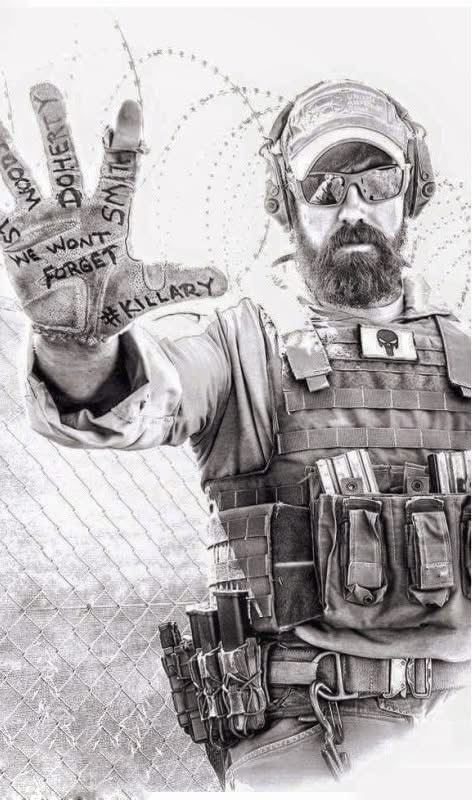
THE REASON BEHIND BERGDAHL'S RELEASE, HILLARY'S SERVER BEING WIPED, and the 9/11 BENGHAZI attack
Here's the real Benghazi story: Ambassador Stevens was sent to Benghazi to secretly retrieve US made Stinger Missiles that the State Dept had supplied to Ansar al Sharia in Libya WITHOUT Congressional oversight or permission! Sec State Hillary Clinton had brokered the Libya deal through Ambassador Stevens and a Private Arms Dealer named Marc Turi, but some of the shoulder fired Stinger Missiles ended up in Afghanistan where they were used against our own military. On July 25th, 2012, a US Chinook helicopter was downed by one of them. Not destroyed only because the idiot Taliban didn't arm the missile. The helicopter didn't explode, but it had to land and an ordnance team recovered the missile’s serial number which led back to a cache of Stinger Missiles kept in Qatar by the CIA.
Obama and Hillary were in full panic mode, so Ambassador Stevens was sent to Benghazi to retrieve the rest of the Stinger Missiles. This was a "do-or-die" mission, which explains the Stand Down Orders given to multiple rescue teams during the siege of the US Embassy. It was the State Dept, NOT the CIA, that supplied the Stinger Missiles to our sworn enemies because Gen. Petraeus at CIA would not approve supplying the deadly missiles due to their potential use against commercial aircraft. So then, Obama threw Gen. Petraeus under the bus when he refused to testify in support of Obama’s phony claim of a “spontaneous uprising caused by a YouTube video that insulted Muslims.”
Obama and Hillary committed TREASON! This is what the investigation is all about, WHY she had a Private Server, (in order to delete the digital evidence), and WHY Obama, two weeks after the attack, told the UN that the attack was the result of the YouTube video, even though everyone KNEW it was not.
Furthermore, the Taliban knew that the administration had aided and abetted the enemy WITHOUT Congressional oversight or permission, so they began pressuring (blackmailing) the Obama Administration to release five Taliban generals being held at Guantanamo. Bowe Bergdahl was just a useful pawn used to cover the release of the Taliban generals. Everyone knew Bergdahl was a traitor but Obama used Bergdahl’s exchange for the five Taliban generals to cover that Obama was being coerced by the Taliban about the unauthorized Stinger Missile deal. So we have a traitor (BHO) as POTUS that is not only corrupt, but compromised as well, and a Sec of State that is a serial liar, who perjured herself multiple times at the Congressional Hearings on Benghazi. Perhaps this is why no military aircraft were called upon for help in Benghazi, Because the administration knew that our enemies had Stinger Missiles, that if used to down those planes, would likely be traced back to the CIA cache in Qatar, and then to the State Dept’s illegitimate arms deal in Libya.
https://www.politico.com/search?q=Marc-turi-+Libyan-rebels-Hillary-Clinton
https://www.snopes.com/fact-check/chris-stevens/
Everyone needs to know the true story of Benghazi. More than half of US citizens DO NOT Know.
43 notes
·
View notes
Photo
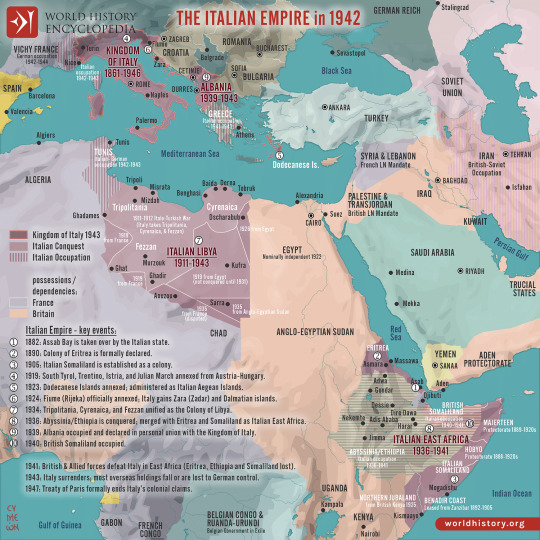
Italian Colonialism in Libya
One of the most coveted projects of Italian colonial policy was to secure an African colony in the Mediterranean. For this reason, Italy fought and won the Italo-Turkish war of 1911-1912 for the control of Tripolitania and Cyrenaica. These two possessions in Northern Africa were later unified in 1934 to form the colony of Libya, which remained under Italian control until 1943.
Tripolitania and Cyrenaica were characterised by continuous clashes between the Italians and Libyan resistance movements. The conflict lasted until 1932, when a ‘pacification’ campaign conducted during Benito Mussolini's (1883-1945) fascist rule violently repressed the rebellion.
The Diplomatic Preparation For Invasion
One of the long-term aims of Italy’s colonial plans was an expansion on the other shore of the Mediterranean. Italian appetites were first directed towards Tunisia, but in 1881 France imposed a protectorate there, frustrating Italian ambitions. The French move was perceived as a humiliation, hence it was often referred to as ‘the slap of Tunis’, and it diminished the possibilities of finding a suitable alternative for an Italian outpost in North Africa. Attention was, therefore, shifted towards Tripolitania, selected because it was one of the few places free from the control of other European powers and because it could constitute a strategically useful naval base in the Mediterranean. Tripolitania corresponds to the northern and coastal part of modern-day Libya but was then a semi-autonomous province (vilayet) of the Ottoman Empire (circa 1299 - 1922).
Ottoman suzerainty was more nominal than effective: between 1711 and 1835 the region was virtually independent under the rule of the local Karamanli dynasty. Even after the Ottomans had restored control in 1835, Tripolitania was under the influence of a political-religious fraternity called the Sanusiyya. This brotherhood was established in 1837 by Muhammad Ibn 'Ali Al-Senussi (1787-1859), an Algerian mystic who aimed to restore Islam to its early practice. Thanks to a successful integration within the Libyan tribal system, the Sanusiyya soon became an important centre of power, one that would later coordinate the resistance against the Italian invasion.
Returning to Italy, nationalistic press of the late-19th century emphasised the possibility of transforming Libya into a flourishing land for Italian emigrants, imagining the area as the future centre of trade across Africa. However, the Italian government was well aware that Libya had few natural resources - oil would only be discovered in 1955 - and a demographic colonisation would have been an arduous project. Moreover, at the time of the invasion, there were fewer than 1,000 Italians settled in Libya. Consequently, it was impossible to justify a war as a way to protect Italians abroad. As it was for Italian colonialism in Eritrea, the main justification was one of prestige and so Italy could sit at the table of the Great Power. The first military plans for an intervention in Libya came immediately after the ‘slap of Tunis’, then a tide of consequent events drove Italian action.
Nonetheless, it was fundamental to accompany the military preparation with diplomatic efforts to justify any Italian move on Libya. At the time, Italy was part of the Triple Alliance, together with the Austro-Hungarian Empire and the German Empire, who had been allies since 1879. This new military pact, another consequence of the ‘slap of Tunis’, was secured in 1882, and officially marked the end of a long period of friendship between the Kingdom of Italy and France. Even though the Italians received, in 1891, reassurances from their new allies regarding support for colonial claims, it was impossible to gain any progress in the Mediterranean without the consent of the true powers of the Mediterranean: France and Great Britain. Moreover, at the time Italy had to reassess its colonial policy after the defeat at Adwa in 1896 against the Ethiopian Empire, which blocked Italian expansionism in the Horn of Africa. The Mediterranean became, then, even more important for the Italian navy, due to the uncertainty of the situation in the Red Sea. France and Great Britain had already agreed on their respective areas of influence with the Anglo-French Convention of 1890. Therefore, Italy was forced to search for a rapprochement towards France and a series of diplomatic contacts culminated in the Italo-French agreement of 1901. This was followed by a similar Anglo-Italian agreement in 1902. This triangulation gave Italy a free hand in Tripolitania in exchange for Italian non-interference in any British interests in the Mediterranean and French claims in Morocco.
The international preparation was accompanied by a pervasive domestic policy. The topic of Libya was pushed by pro-colonialists and newspapers. The Banco di Roma, one of the main Italian banks, started to invest significantly in Tripolitania. To this must also be added the internal political calculations of the Prime Minister Giovanni Giolitti (1842-1928). One of the most important political leaders, Giolitti's tenure witnessed economic expansion and progressive social reforms, such as the introduction of universal male suffrage in 1912. In addition, he was politically unscrupulous and his trasformismo was noted, that is, the political art to create (too) flexible coalitions of government. Giolitti was also frequently associated with episodes of corruption. The war in Libya was one way to strengthen his government by seeking the support of the nationalists and the liberal conservatives.
Another important factor was the Ottoman Empire. In 1876, Abdul Hamid II (1842-1918) became sultan, paving the way for decades of absolutist rule. There was a broad opposition movement to the sultan, called the Young Turks, that was advocating for a constitution. Their revolution against the sultan in 1908 led to a period of restored parliamentary rule in the empire, but also brought internal instability and international weakness. In 1908, Bulgaria declared its independence from Ottoman rule, and the Austro-Hungarian Empire annexed Bosnia and Herzegovina, sharpening the tensions in the Balkans which became one of the major causes of WWI (1914-18).
Read More
⇒ Italian Colonialism in Libya
22 notes
·
View notes
Text

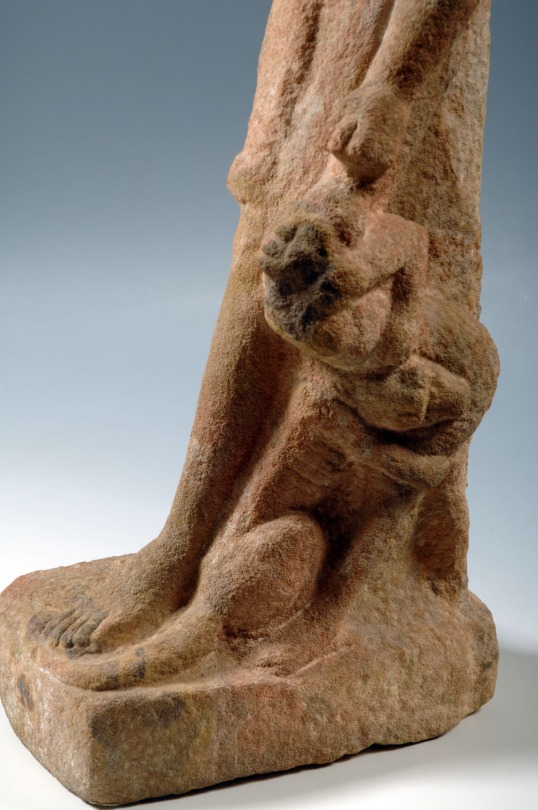
Statue of a pharaoh, possibly Ramesses VI, holding by the hair a Nubian prisoner being bitten by a lion.
A short military campaign might have ensued and from Ramesses VI’s second year on the throne onwards these troubles seem to have stopped.
This campaign also could be connected with an unusual statue of Ramesses VI showing him holding a bound Libyan captive (Now in the Luxor Museum. CG 42152), as well as with a depiction of Ramesses VI triumphing over foreign soldiers on the second pylon of the Karnak temple.
New Kingdom, 20th Dynasty, ca. 1190-1177 BC. Sandstone. Provenance unknown. Now in the Egyptian Museum of Turin. Cat. 1392
22 notes
·
View notes
Text
I hate to be more of a buzzkill but this needs to be talked about specially since this will be a global issue. The orange has made it so. Other countries are licking boots to host US detained migrants meant for deportation in exchange for US dollar checks. (think El Salvador situation with US migrants). Now mind you while saying ‘hosting’ here its an intentional vague media word. Earlier this year the white house mentioned they were looking for other countries to 'ship off' US detained migrants. x The orange admin is experimenting to start a global scale of labor/concentration camps of US immigrants like if they were POW’s to trade for benefits for gods sake. While US taxpayer money is used to fund that in countries like Panama (x) , El Salvador (x), Costa Rica (x) and now wanting to include Rwanda & Libya.
Not long ago a Mexican national was almost shipped off, kidnapped to Libya if it were not of quick acting lawyers and activists. How does that make sense when Mexico is next to US? because they want to use them as bargaining political chips.
And they were planning of sending someone from Vietnam to Libya as well the officials trying to force them to sign English only papers saying it was ok for them to do this. Libyan government can deny it all they want but immigration activists that have talked with their clients have heard direct accounts about this. It has been documented by human watch organizations, Libyan detainment centers hold inhumane conditions including torture, ill-treatment, sexual assault, and unlawful killings. x
They know detained migrants that leave the US can be used however they wish and their human treatment be denied in exchange for money and hateful interests bc their countries will not lift a finger for them.
This at its worst: It could mean migrants sent across the globe to be prisoners in another country. Forced to become slaves (in exchange for any small freedom or wage) fulfilling their labor shortage under the pretext of ‘carrying out their sentence even if they have no criminal record’. Good case scenario: In the vagueness of the country's mercy they offer the migrants an additional citizenship to said country they were sent to with freedom to return to their original country. Costa Rica did something like this. However this is bad as it does not even guarantee their humane treatment. Best case scenario: This political life ruining shit is shut down. With all the detainees given support to go back to the lives they wish to continue.
It will no doubt also affect US citizens in due time if its allowed to go on.
#us politics#migrants#idk what other palatable word ppl want to hear but internment or political imprisonment of large minorities groups camp but its happening#and their freedoms are being stripped away even if they are leaving the US and have no criminal record they put them in shackles#and force them to board vehicles to an unknown destination
13 notes
·
View notes
Text
The third war was the Libyan invasion of Chad:
The last of the three wars is the Libyan invasion of Chad, which ended with the Toyota War. This war also points to a key difference between the real Muammar Gaddafi and the person that posterity and useful idiots try to make him into being.
Namely that instead of some pan-Africanist anti-racist Gaddafi was a fascist Arab nationalist who believed Arabs were culturally and morally superior to Black Africans and waged the war first for a narrow strip of land and then to expand his power as far into Chad as he could reach.....and then it turned out that things didn't go very well because the Chadians improvised and routed him at the Battle of Fada, exposing the hollowness of Gaddafi the man versus that of Gaddafi the myth.
#lightdancer comments on history#black history month#african history#military history#libyan-chadian war#toyota war
0 notes
Text
I have no interest in seeing Gladiator II but I am enjoying Bret Devereaux's posts about it. Some excerpts (emphasis in original):
Gladiator II is explicitly set during the joint reign of Geta and Caracalla, two emperors of the Severan dynasty, but the film’s depictions of the two emperors is unrecognizable, [...] [H]ow does the film opt to portray Caracalla? Well, both of the emperors were cast as pale white young men with red hair; makeup is used to give their faces a sickly sort of color, with deep bags under their eyes. They’re presented in the film as chaotic, with Caracalla in particular being an effectively insane syphilitic (treating his pet monkey as a senator), and also queer-coded, shown with a decadent entourage of both men and women, wearing lots of jewelry (something only women and villains do in this film) and generally being fairly ‘camp.’ [...] – in contrast to the heroes Acacius and Lucius who are both explicitly straight and married to women. Indeed, even Lucius’ closest ally in the gladiator school, the former gladiator Ravi, stops to make sure we’re aware that he’s married to a woman. [...] Caracalla’s father was Septimius Severus, a man of North African extraction who claimed both Libyan and Punic ancestors. Caracalla’s mother, Julia Domna, was a Syrian woman, from an Arab family born in what today would be Homs, Syria (then Emesa). [...] [I]n the film, both Geta and Caracalla are the sort of emperors who send their generals – the fictional Marcus Acacius played by Pedro Pascal – to fight their ways, while they remain at Rome in luxury, far from any sort of violence. Indeed, this is an essential thematic contrast in the film: Rome’s failure and decadence are represented by the queer-coded, effiminate ‘soft’ men of the city and politics – Geta, Caracalla, Macrinus, Senator Thraex – while its vitality is represented by the hard men of violence – Acacius and Lucius. [...] Except the real Caracalla was exactly the sort of Roman that Ridley Scott pines for and he was a terrible emperor as a result. [...] Far from being a luxuriant, decadent, effeminate and insane figure – as Scott has him – the real Caracalla was perfectly sane. Paranoid, vengeful and violent, but absolutely in touch with reality. He is exactly the sort of man of violence these films glorify. And as a result he was a bad emperor! Caracalla’s lavish payments to the soldiers (he raised their pay substantially) and frequent campaigns (also expensive) drained the Roman treasury, while his reign reinforced the damaging precedent that the emperor was, for the most part, simply a soldier and a general. The problem with that is that if the emperor is just a general, then any general could be emperor and starting in 235, a non-trivial portion of Roman generals would try it, causing the Crisis of the Third Century. [...] For one, the film’s juxtaposition between the burly men of violence like Acacius and the weak, decadent senators is silly on its face. Indeed, Scott relies in both Gladiator films on a contrast between the career military men (Maximus, Acacius) and the political, senatorial elite. In Rome, these were the same men. To be a legatus Augusti pro praetore and to have a provincial command and a large army, one had to be a senator who had at least reached the praetorship. Not every senator was a general but every Roman general was a senator. Acacius’ claim in Gladiator II to not be “an orator or a politician” but merely a soldier and a general is a nonsense claim: at Rome, one could not be a general without being an orator and a politician. And while the film errs in suggesting that Roman collapse is just around the corner in 211 – when in fact we are close to the height of the empire and serious fragmentation is two centuries away – the Crisis of the Third Century (235-284) is coming. But the Crisis of the Third Century isn’t caused by a shortage of burly men in armor doing violence, but a surplus of them.
20 notes
·
View notes
Text
by Jake Wallis Simons
The Gray Lady even contrasted the two incidents in a way that painted the American atrocity favourably while casting Israeli intentions in doubt. The Kabul attack, it said, ‘came after a suicide bombing killed at least 182 people, including 13 American troops, during the frantic American withdrawal from the country. Under acute pressure to avert another attack, the US military believed it was tracking a terrorist who might imminently detonate another bomb. Instead, it killed an Afghan aid worker and nine members of his family.’
The Gaza strike, however, ‘adds fuel to accusations that Israel has bombed indiscriminately’, the New York Times said, pre-empting the results of the independent investigation with breathless speculation and a healthy dose of ‘confirmation bias’ of its own. The assumption could not be clearer: whereas the Americans were acting out of panic and confusion, the Israelis were either acting out of disregard for human life or straightforward bloodlust.
Civilian deaths, including those of aid workers, are a tragic reality of modern warfare. Sixty-two humanitarian workers lost their lives in combat zones last year. Although they were mostly killed at the hands of autocratic regimes and militias, during wartime they are also the casualties of democracies, including Britain.
During the Libyan civil war in 2011, when David Cameron had his hands on the joystick, 13 people were killed by a NATO airstrike, including an ambulance driver, three nurses and some friendly troops. (He did not, surprisingly, subject his own government to the type of rhetoric that he has recently been levelling at the Israelis over the mistaken Gaza strike.) That same week, NATO wiped out a family near Ajdabiya in the north of the country. This year, even the Danish military was forced to admit that its aerial assault had claimed the lives of 14 Libyan civilians.
The difference between attitudes towards most Western armed forces and the Israelis could not be sharper. According to the UN, the average combatant-to-civilian death ratio in war around the world is one to nine. When Britain, America and our allies battled Islamic State in Mosul in 2016-17, we achieved a much more respectable rate of about one to 2.5. In Gaza, Israel has done better still, reaching about one to 1.5, and possibly even less.
#double standards#civilian casualties#media bias#new york times#israel#gaza#hamas#humanitarian workers#civilian deaths#afghanistan
80 notes
·
View notes
Text
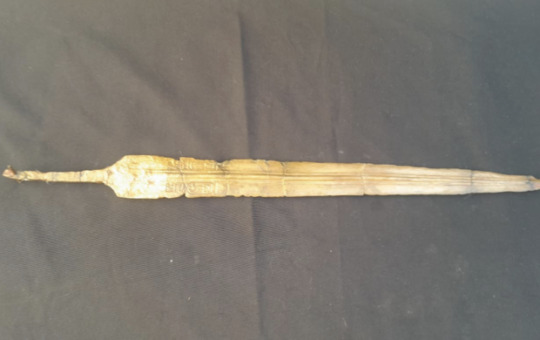
Sword with Markings of Ancient Pharaoh Ramses II Unearthed in Egypt
Archaeologists unearthed a series of mudbrick rooms filled with religious tributes, soldiers’ personal effects, engraved weaponry and animal bones.
Researchers have discovered a 3,200-year-old Egyptian fort filled with archaeological treasures. Located at the Tell Al-Abqain excavation site in northwest Egypt, the buried structure contained religious tributes, military barracks and a bronze sword inscribed with the name of the pharaoh Ramses II.
The fort was unearthed during ongoing excavations at Tell Al-Abqain. A team led by Ahmed El Kharadly, an archaeologist with Egypt’s Ministry of Tourism and Antiquities, found a series of mudbrick architectural units in the area, according to a statement from the ministry.
Those buildings, or barracks, contained a trove of artifacts, including the necessities and personal effects of the soldiers stationed there during Egypt’s New Kingdom era, a period of prosperity, territorial expansion and peace that lasted from around 1550 to 1077 B.C.E. The barracks show the military power Egypt expended to grow and defend its territory during this time.

“It is an important discovery highlighting the strategic role of Tell Al-Abqain area as a crucial military outpost on the western military road, protecting Egypt’s northwestern borders from potential invasions by Libyan tribes and sea peoples,” Mohamed Ismail Khaled, secretary-general of Egypt’s Supreme Council of Antiquities, tells Ahram Online’s Nevine El-Aref.
The barracks’ advanced architectural layout exemplifies the engineering talents of the ancient Egyptian builders, who skillfully harnessed the existing landscape for military objectives, Khaled adds.
At the site, researchers also found granaries, cow burials and pottery containing fish bones. In ancient Egypt, cows were “revered as celestial deities” and symbols of ���strength, abundance and prosperity,” per the statement. However, these specific burials indicate that soldiers likely ate the cows: The bovine remains were found in an area near an oven, “which confirms that they were probably divided into parts and then stored in silos after drying,” El Kharadly tells Live Science’s Owen Jarus.

Along with evidence of soldiers’ daily provisions, researchers found accessories and toiletries, like ivory applicators for kohl eyeliner, necklaces of carnelian and faience beads shaped like pomegranate blossoms, and scarabs engraved with deities’ names, per the statement. The archaeologists also found two limestone blocks, one inscribed with the name of an official, “Bay,” and the other mentioning Ramses.
The pharaoh Ramses II, or Ramses the Great, ruled Egypt from 1279 to 1213 B.C.E., as the third king of the 19th Dynasty. Nicknamed the “builder pharaoh,” Ramses commissioned many temples during his reign, ensuring a lasting legacy. The newly discovered barracks also illustrate his sprawling influence.

One of the most intriguing discoveries was a bronze sword engraved with the cartouche of Ramses, or hieroglyphs arranged in an oval representing his name. Its presence suggests the fort was an important site during the pharaoh’s reign, per Ahram Online.
The barracks are an “important discovery” illuminating Egypt’s military strategy during Ramses’ rule, as Peter Brand, a historian at the University of Memphis who wasn’t involved in the excavation, tells Live Science.
“The weaponry demonstrates the place was well armed and may even have been able to produce some weapons on site,” Brand adds. The bronze sword was “likely given to a high-ranking officer as a royal reward. … The king’s name and titles engraved on it increased the prestige of its owner and ‘advertised’ the [king’s] wealth, power and generosity.”
By Sonja Anderson.
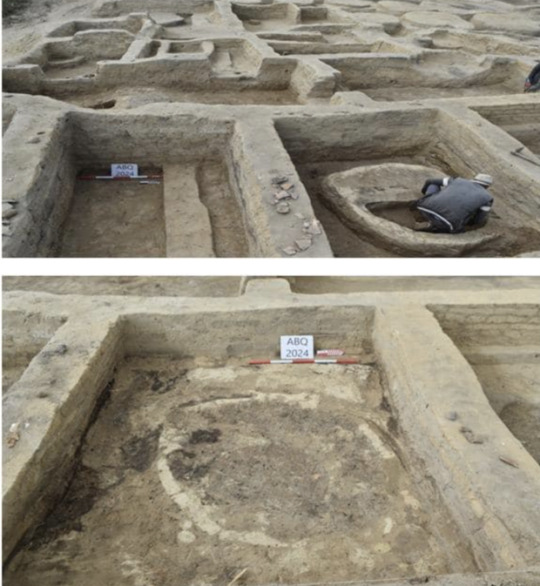
#Sword with Markings of Ancient Pharaoh Ramses II Unearthed in Egypt#Tell Al-Abqain#3200-year-old Egyptian fort#pharaoh Ramses II#Ramses the Great#bronze#bronze sword#ancient artifacts#archeology#archeolgst#history#history news#ancient history#ancient culture#ancient civilizations#ancient egypt#egyptian history#egyptian pharaoh
32 notes
·
View notes
Text
it's time to have a talk about NATO.
NATO "invites" themselves into African countries to occupy and enslave, and forces those countries to foot the bill for their stay. NATO massacred hundreds of thousands of serbs in a heinous bombing campaign and in the process displaced tens of thousands of the same kosovars who NATO supposedly invaded the region to defend, under humanitarian pretenses. US regime change efforts led to a Ukrainian government which celebrates fascism and which purchased from NATO nuclear arms to place at the border of Russia, which doesn't excuse Russia's invasion but DOES make NATO guilty of turning the Russia-Ukraine war/conflict/genocide, into a global nuclear crisis in the name of profit. Ironically, once again, the same thing NATO has done in Ukraine with WMDs was used as the false pretense for NATO to invade Libya, overthrow the democratically elected Libyan government & literally directly resurrect the Libyan slave trade. Every single arms manufacturer that NATO works with sells trillions of dollars worth of arms to Israel to use against the Palestinians.
The anti-imperialists had to push the line in the west to get any of you to vocally support Palestine and while the generally consensus now is that Israel is an imperial project, many of you are yet unwilling to accept that the next step, the next line that has to be pushed, is the line on NATO.
NATO was created under the rhetoric "we are the last line of defense against the spread of Soviet influence!" And has, like every anti-communist cause in the world, become a terrorist, anti-human organization. It's just another excuse in the book of the imperialists to absorb whatever country they want.
Today NATO held a conference in Dayton OH, because the plan is for Dayton once again to become a global hub of military technology. NATO is inviting the same arms manufacturers that are arming Israel to build weapons factories in Dayton, including a facility which will build AI-powered military drones that identify and execute targets using artificial intelligence.
The "big, beautiful bill." Recently signed that guts medicaid also gives NATO $1 Trillion, *trillion*, TRILLION DOLLARS.
It is long past time for "Abolish NATO" to become the new line.
11 notes
·
View notes
Photo

Dido
Queen Dido (aka Elissa, from Elisha, or Alashiya, her Phoenician name) was a legendary Queen of Tyre in Phoenicia who was forced to flee the city with a loyal band of followers. Sailing west across the Mediterranean she founded the city of Carthage c. 813 BCE and later fell in love with the Trojan hero and founder of the Roman people Aeneas. The tale of Dido is most famously recounted in Virgil's Aeneid but she appeared in the works of many other ancient writers both before and after.
Dido & Pygmalion
The earliest surviving mention of the founding myth of Carthage appears in the work of Timaeus of Taormina, a Greek historian (c. 350-260 BCE) whose original texts do not survive but which are referred to by later authors. Timaeus was the first to present the foundation of Carthage as occurring in either 814 or 813 BCE. An additional source on the historical Elissa is Josephus, the 1st century CE historian, who quotes Menandros of Ephesus' list of 10th-9th century BCE Tyrian kings, which includes mention of an Elissa, sister of Pygmalion (Pumayyaton), who founded Carthage in the seventh year of that king's reign.
The most famous version of the Dido story, though, is found in Virgil's Aeneid. The 1st-century BCE Roman writer describes Dido as a daughter of Belus, the King of the Tyre in Phoenicia. We are told that her Phoenician name was Elissa but the Libyans gave her the new name Dido, meaning 'wanderer'. Virgil recounts that Dido's brother, Pygmalion, cheated his sister out of her inheritance and then, in order to keep the throne of Tyre, killed Dido's husband Sychaeus. In another version, Dido married Acherbas (Zakarbaal), her uncle and priest of Melqart (or Baal) who was similarly executed by Pygmalion to acquire his wealth. Dido then fled the city with a loyal following (which included the military commanders Bitias and Barcas) and a hoard of the king's gold to sail west and a new life.
Continue reading...
56 notes
·
View notes